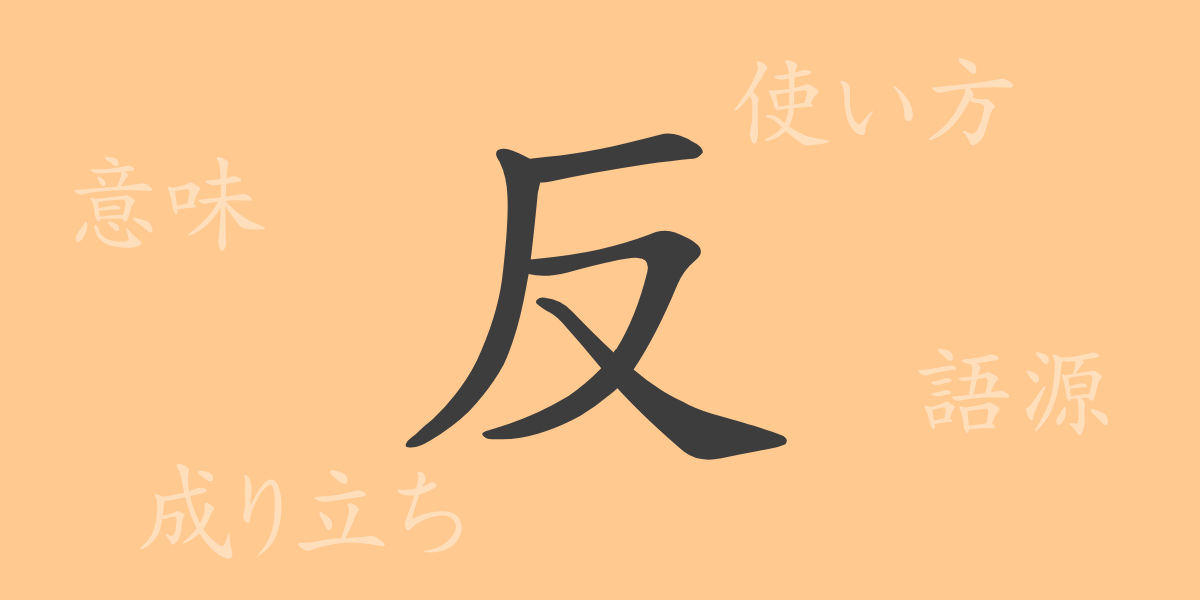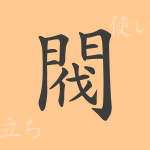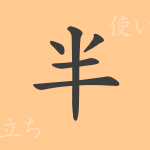Within the rich expressions of the Japanese language, commonly used kanji form the foundation of communication. One such character is “反” (はん). This article delves deeply into the history, meanings, and usage of the “反” character, exploring how this single character has rooted itself in Japanese language and culture from ancient calligraphy to modern keyboards.
Origins of 反 (はん)
“反” (はん) evolved from an ancient Chinese pictograph that represented a bolt of cloth, originally depicting cloth folded in half, leading to derived meanings such as “to return” and “opposite.” Over time, its form and meanings expanded, being used in a variety of contexts.
Meanings and Usage of 反 (はん)
In modern Japanese, “反” (はん) is often used in words like “反対” (はんたい, opposition) and “反応” (はんのう, reaction), carrying connotations of negation or a response to something. It can also combine with other kanji to express more complex concepts.
Pronunciation, Stroke Count, and Radical of 反 (はん)
The kanji “反” (はん) is simple yet carries strong meanings, making it easy to remember and write.
- Pronunciation: The on-reading is “ハン” (はん), and kun-readings include “そる” (そる) and “そらす” (そらす).
- Stroke Count: “反” (はん) is a 4-stroke kanji.
- Radical: The radical of “反” is “又” (また).
Idioms, Phrases, and Proverbs Using 反 (はん) and Their Meanings
There are numerous idioms, phrases, and proverbs in Japanese that include “反” (はん). For example, “反省” (はんせい, reflection) involves thinking back on one’s actions, “反響” (はんきょう, echo) refers to the response or impact of an action or event. “反目” (はんもく, confrontation) indicates mutual opposition, and “一反木綿” (いったんもめん, something very light) is used to describe something very insubstantial. These expressions reflect the thoughts and culture of the Japanese people.
Summary on 反 (はん)
The meanings embedded in a single kanji are profound, and when combined, they create endless expressions. “反” (はん) is one such character. Through this article, you may have gained a deeper understanding of the rich history and meaning of “反” (はん), as well as its versatility. Knowledge of these kanji is invaluable as elements that constitute the Japanese language.

























